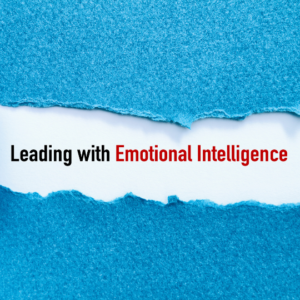Emotional Wellness: The role of emotional intelligence in holistic health
In today’s world, it’s easy to get caught up in the hustle of life, often focusing on external factors like work, fitness, or appearance. But have you ever stopped to consider how your emotions are influencing your overall well-being? Emotional wellness, which includes the ability to understand and manage your emotions, is a cornerstone of a healthy, balanced life—and a key part of that is Emotional Intelligence (EI).
Emotional Intelligence is more than just a buzzword; it’s about recognizing and understanding our own feelings, connecting with others on a deeper level, and responding to life’s challenges in a healthy, constructive way. This kind of emotional awareness doesn’t just help us navigate our relationships or careers—it plays a huge role in our physical, mental, and even spiritual health.
So how does Emotional Intelligence fit into the bigger picture of holistic health? Let’s dive into the ways it can benefit you.
What Exactly is Emotional Intelligence?
Emotional Intelligence (EI) refers to the ability to recognize, understand, and manage your own emotions, as well as the emotions of others. While some people may have a natural ability to tune into their feelings, EI is something that can be cultivated and developed over time. According to psychologist Daniel Goleman, there are five key components of EI:
- Self-awareness: Recognizing and understanding your own emotions.
- Self-regulation: The ability to control or redirect disruptive emotions and impulses.
- Motivation: Using emotions to pursue goals with energy and persistence.
- Empathy: Understanding and sharing the feelings of others.
- Social skills: Building strong, healthy relationships through effective communication.
These abilities are interconnected and form the foundation for emotional wellness. Now, let’s take a look at how Emotional Intelligence impacts our health, both inside and out.
How Emotional Intelligence Affects Physical Health
We’ve all heard the phrase “stress takes a toll on your body,” but it’s worth digging into just how much our emotional state affects our physical health. Negative emotions like anger, fear, or frustration can trigger a cascade of reactions in the body—like increased heart rate, high blood pressure, and the release of stress hormones like cortisol. Over time, this can lead to serious health problems, such as heart disease, digestive issues, or even chronic pain.
That’s where Emotional Intelligence comes in. By becoming more aware of your emotions and learning how to manage them, you can actively reduce your body’s stress response. For instance:
- Self-regulation (a key EI skill) helps you stay calm in stressful situations, preventing the physical impact of anxiety or anger.
- Mindfulness practices—like deep breathing or meditation—can help lower cortisol levels, improve sleep, and boost immune function.
The more in tune you are with your emotions, the better you can manage them in healthy ways, and the less your body will pay the price.
Emotional Intelligence and Mental Health
Mental health is inextricably linked to emotional wellness. If you’re constantly bottling up your feelings or letting your emotions take control, it’s easy to slip into feelings of overwhelm, anxiety, or depression. But with Emotional Intelligence, you can build resilience, increase self-compassion, and face challenges with a clearer mind.
Here’s how EI can positively affect your mental health:
- Emotional resilience: People with high EI tend to bounce back from difficult situations faster. They view challenges as opportunities to grow, rather than threats that cause anxiety.
- Reduced anxiety: Self-awareness allows you to identify the root causes of your stress or anxiety. Instead of letting emotions spiral out of control, you can address them head-on, whether that’s through healthy coping mechanisms or seeking support.
- More positive decision-making: When you can recognize your emotions and manage them effectively, you’re better equipped to make decisions that align with your long-term well-being, rather than acting impulsively out of frustration or fear.
Additionally, empathy—a core component of EI—helps you connect more deeply with others, reducing feelings of loneliness or isolation, which are common contributors to mental health struggles.
How Emotional Intelligence Enhances Relationships and Social Well-Being
We all know that relationships are central to our happiness, but they can also be a source of stress if we don’t manage our emotions effectively. Whether it’s with family, friends, or colleagues, our ability to connect with others and communicate effectively can make or break a relationship.
Emotional Intelligence plays a huge role in:
- Building strong relationships: When you understand and respect your own feelings, you’re better able to understand and respect others’. This leads to more compassionate, supportive connections.
- Effective communication: High EI means being aware of how your words and actions impact others. By practicing empathy and active listening, you can communicate more clearly and avoid unnecessary conflict.
- Conflict resolution: Rather than reacting out of anger or frustration, someone with high EI is better able to de-escalate conflicts, see multiple perspectives, and find common ground.
Our social connections are critical to our emotional well-being—and developing Emotional Intelligence is one of the best ways to nurture those relationships.
Emotional Intelligence and Spiritual Health
Even if you don’t identify with a particular religious or spiritual tradition, emotional wellness has a direct impact on your sense of peace, purpose, and fulfillment. When we’re emotionally intelligent, we tend to feel more grounded and aligned with our values, which often leads to a greater sense of meaning in life.
Here’s how EI intersects with spiritual health:
- Self-awareness: By understanding your emotions and the values that drive them, you can make more intentional choices that align with your deeper sense of purpose.
- Mindfulness: Mindfulness is a practice rooted in emotional awareness. Whether through meditation or simple breathing exercises, mindfulness helps calm the mind and foster a deeper connection to the present moment—a vital part of spiritual growth.
- Emotional healing: High EI promotes emotional healing. By acknowledging and processing difficult emotions (rather than suppressing them), you create space for inner peace and emotional freedom, which is a key component of spiritual well-being.
How to Cultivate Emotional Intelligence
The great news is that Emotional Intelligence isn’t something you either have or don’t have—it’s a skill that can be developed with time and intention. Here are some practical ways to grow your EI:
- Practice mindfulness: Spend time each day becoming aware of your emotions without judgment. Meditation, journaling, or even simple breath work can help you tune into your feelings.
- Reframe negative emotions: Instead of reacting impulsively to frustration or sadness, try to pause and reflect on what those feelings are trying to tell you. Reframing can help you respond in a more constructive way.
- Engage in active listening: Practice truly listening when others speak—without interrupting or judging. This strengthens your empathy and improves your relationships.
- Cultivate gratitude: Focusing on what you’re grateful for helps shift your emotional perspective and foster positive emotions.
- Seek feedback: Ask for feedback from trusted friends or colleagues to better understand how your emotions and behaviors affect those around you.
In Conclusion
Emotional Intelligence isn’t just a soft skill or something to focus on in therapy—it’s a powerful tool for overall well-being. By improving our ability to understand and regulate our emotions, we can reduce stress, improve our relationships, foster better mental health, and even support our physical and spiritual health. Emotional Intelligence is, in many ways, the glue that connects mind, body, and spirit, helping us lead more balanced, fulfilled lives.
So, the next time life gets overwhelming, remember: your emotions are not something to be ignored or suppressed. They are powerful allies in your journey toward holistic health. Embrace them, learn from them, and use them to guide you toward greater wellness.

